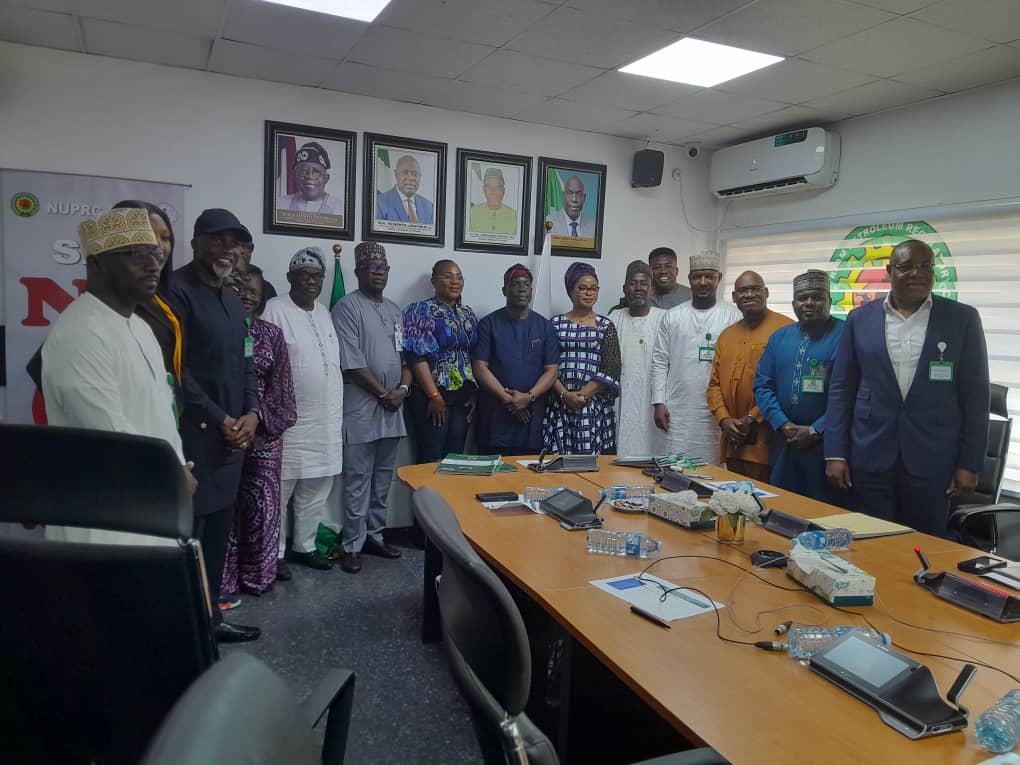Nigeria’s tier-2 banks stand at a crossroads, forced by the CBN’s sweeping recapitalisation mandate to either raise unprecedented capital or be swept into a new wave of mergers that could redefine the nation’s banking landscape, writes Festus Akanbi
When the Central Bank of Nigeria (CBN) announced in March 2024 that commercial banks would need to drastically raise their minimum capital by 2026, the regulator did more than alter financial ratios. It rewrote the script for the nation’s banking sector. International banks were told to boost their base to N500billion, national banks to N200billion, and regional players to N50billion.
The CBN defended the policy as essential for financial stability, investor confidence, and the ambitious target of building a $1 trillion economy. But for Nigeria’s tier-2 banks, which include Ecobank Nigeria Limited, First Monument Bank Plc (FCMB), Fidelity Bank Plc, Stanbic IBTC Plc, Sterling Bank Nigeria Plc, Unity Bank Plc, Union Bank of Nigeria, and Wema Bank Plc, the challenge is existential. They are not minnows, nor do they command the heft of the elite “FUGAZ” banks (First Bank, UBA, GTCO, Access, and Zenith).
The question now is whether they will raise enough capital to stay independent or become absorbed in a new wave of mergers reminiscent of the consolidation era of 2004–2005.
Tier-2 Banks
Nigeria’s financial system has always been split between the dominant tier-1 institutions and the aggressive tier-2 players. The FUGAZ banks lead on deposits, loans, branch networks, and cross-border reach, with Zenith currently topping the industry in Tier-1 capital and Access Bank commanding the largest asset base.
Tier-2 banks, on the other hand, occupy a vital middle space. They are often more agile, more retail-focused, and quicker to embrace digital innovation. Yet, their smaller balance sheets and market valuations leave them vulnerable whenever regulators redraw the rules of the game.
According to SBM Intelligence’s report, “Capital, Competition, and Consolidation,” the new CBN policy is one of the most consequential shifts in two decades. For tier-2 lenders, it represents not just a regulatory hurdle but a battle for survival.
A Race against Time
Faced with the 2026 deadline, tier-2 banks are deploying diverse strategies to build capital buffers. The list includes public offers, rights issues, private placements, offshore financing, and even divestments. Some have taken decisive early steps, while others risk falling behind.
Fidelity Bank has been the standout performer. Already raising over N270 billion through a heavily oversubscribed public offer and rights issue, it has secured shareholder approval to increase issued share capital from N26.7 billion to N36.7 billion, creating room for an additional 20 billion ordinary shares. The bank’s stock tells the story: from N1.65 in 2020 to over N21.20 in mid-2025, a staggering rise of more than 1,100%. Its success is driven by strong earnings, an aggressive digital expansion strategy, and market confidence in its governance.
Wema Bank, Nigeria’s pioneer in fully digital banking, is also racing ahead. It raised N40 billion in 2023 and has combined a N150 billion rights issue with a N50 billion private placement. Wema’s stock surged from N1.50 in 2020 to nearly N21.90 by 2025, reflecting investor enthusiasm for its digital-led transformation.
FCMB Group has opted for a three-phased capital-raising plan worth N400 billion. Its first phase, a N144.6 billion public offer, was oversubscribed by 33%. The second phase includes divestment of stakes in subsidiaries like Credit Direct Limited and FCMB Pensions Limited through IPOs and private placements, targeting another N80–90 billion. A final phase will involve offshore private placements with development finance institutions, possibly through preference shares.
Sterling Financial Holdings has combined private placements, rights issues, and a forthcoming $400 million (N602 billion) public offering, reflecting its determination to secure a solid capital base. Its share price more than tripled from N1.70 in 2020 to N7.50 in September 2025, supported by retail and SME lending strength.
Meanwhile, Stanbic IBTC, with its multinational parentage, enjoys deeper financial backing but still faces pressure to prove it can hit the new thresholds without cannibalising returns.
Investor Confidence
SBM’s report notes that despite macroeconomic headwinds, ranging from naira volatility to rising operational costs, investor sentiment toward tier-2 banks has remained surprisingly bullish.
Over the past five years, their equities have outperformed expectations. FCMB rose from N3.33 in 2020 to N10.85 in 2025, while Sterling and Wema delivered steady triple-digit percentage gains. Fidelity and Wema, in particular, became market darlings, showing that Nigerian retail and institutional investors still believe in the future of mid-tier banks.
This confidence matters. The CBN’s recapitalisation drive is not only about compliance but about restoring trust in the system. The more tier-2 banks can demonstrate resilience in both earnings and investor sentiment, the better their chances of surviving without being forced into shotgun marriages.
Consolidation
Still, the shadow of consolidation looms large. SBM Intelligence expects mergers and alliances to accelerate as 2026 approaches. The mechanics are not new: stronger tier-2 banks may absorb weaker peers, or two mid-tier players could combine forces to reach the N200–500 billion capital benchmark.
Analysts said the recently concluded merger of Union Bank of Nigeria and Titan Trust Bank will give Union Bank the solidity required at this period. This merger blends Union Bank’s established presence with Titan Trust’s innovative approach, creating a stronger, more modern institution with an expanded network of service centres and ATMs.
On September 26, shareholders of Unity Bank will decide whether to approve the scheme of merger between the bank and Providus Bank. Analysts believed this process would give Unity Bank the leverage needed to navigate the route of recapitalisation. If approved, the merger would represent not just the end of Unity Bank as a standalone institution. It will also see the expansion of Providus Bank into a larger, consolidated financial player, potentially reshaping Nigeria’s mid-tier banking landscape.
One possibility is a merger between Fidelity and Wema. Combining Fidelity’s robust earnings and market confidence with Wema’s digital-first strategy could create a formidable national lender with sufficient capital to challenge tier-1 incumbents.
Another potential pairing could involve FCMB and Sterling, whose strong retail and SME banking footprints may generate synergies in technology, branch networks, and regional penetration. Stanbic IBTC, backed by its multinational parent, may prefer acquisitions, scooping up weaker tier-2 players and consolidating its reputation as the most stable of the mid-tier institutions.
Such mergers would not only change the competitive landscape but also mirror the consolidation era under then-CBN governor Charles Soludo in 2004, when banks were compelled to raise their minimum capital to N25 billion, triggering a wave of mergers that reduced the sector from 89 banks to just 25.
Challenges on the Road Ahead
Even as they scramble to raise capital, tier-2 banks face structural challenges that cannot be solved by equity injections alone. Rising costs of funds, driven by inflation and high interest rates, continue to squeeze margins. Naira volatility makes capital planning difficult and raises the cost of offshore financing. Heavy investments in digital platforms, cybersecurity, and fintech partnerships remain unavoidable if banks want to stay competitive. At the same time, a sustainable shift toward non-interest income streams is vital, but building this diversification requires both scale and expertise.
Those that combine fresh capital with operational efficiency and innovation will not just survive but thrive. Those that cannot will likely disappear into mergers.
Nigeria’s Banking Landscape
The recapitalisation programme is more than a regulatory hurdle. It is a litmus test for the maturity of Nigeria’s financial system. By 2026, Nigeria could see a banking map dominated by fewer but stronger institutions, with tier-2 players either transformed into formidable challengers or absorbed into larger entities.
For customers, the outcome could mean more stability and improved services, though at the cost of reduced choice if smaller banks disappear. For investors, it signals potential windfalls as successful tier-2 banks see their valuations soar. For the economy, the hope is that a sturdier banking system will mobilise capital at the scale needed to finance infrastructure, industry, and the government’s trillion-dollar vision.
Adapt or Be Absorbed
The CBN’s 2026 recapitalisation deadline is a ticking clock. Fidelity and Wema have sprinted ahead, FCMB and Sterling are pushing hard, and Stanbic IBTC remains relatively insulated. Union Bank’s deal with Titan and Unity Bank’s merger talks with Providus Bank look good to save the two old banks.
The coming 18 months will therefore be decisive. If history is any guide, Nigeria’s tier-2 banks will not all make it through as independent entities. Some will rise to new prominence, others will vanish into mergers, and the industry as a whole will be reshaped.
In the end, the impact of the recapitalisation drive is not merely about numbers on balance sheets; it is about who emerges as a credible player in the next era of Nigerian banking.
The post CBN’s Recapitalisation Storm Reshaping Mid-Tier Lenders appeared first on THISDAYLIVE.



